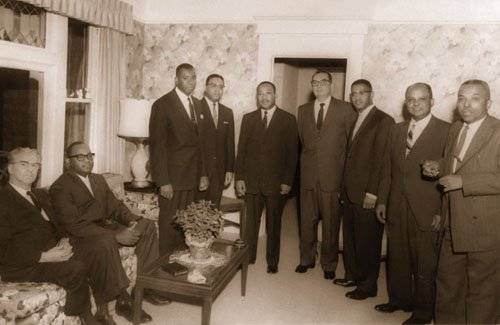Our lives begin to end the day we become silent about things that matter.
Martin Luther King Jr.
In 1961 Dr. Martin Luther King Jr. spent a day in Portland speaking at various venues – Portland State University, which at the time was the Portland State College, Civic Auditorium and at the Vancouver Avenue First Baptist Church. He was 32 years old, co-pastor of the Ebenezer Baptist Church in Atlanta and president of the Southern Christian Leadership Conference. In the mid-1950s, he had led the Montgomery bus boycott.
One of his speeches in Portland focused on integration. In 1961 1.5 million Black people in the South were registered to vote, which King attributed to “conniving on the part of white Southerners.” Today, the number of black people registered to vote in the nation surpasses more than 32 million, or 13.6% of the electorate.
Martin Luther King was born in 1929, barely six months apart from Anne Frank, who in 1942 had hid from the Nazis in an apartment in Amsterdam until her arrest and deportation to a Nazi killing center in 1944. She died in 1945 of typhus in Bergen Belson at age 15. Martin Luther King died of gunshot wounds in 1968 in Memphis at age 39. Today they would each be 94 years old.
Racism was ubiquitous throughout their lives. For Anne Frank and her family, the enactment of the Nuremberg Laws in 1935, which excluded German Jews from citizenship and prohibited them from marrying Germans, institutionalized a world already filled with antisemitic propaganda. Martin Luther King’s world was not all that different: as a black person in the American South, he confronted segregation in his schooling, in restaurants, on buses, and in other public places.
King was able to use his voice to organize rallies and marches to bring tolerance and equality to the American citizens. Anne also had a voice, although of course we never heard it. She wrote in her diary about her desire to live in a world of freedom and tolerance.
Another hopeful voice should also be remembered on Martin Luther King Day, that of Miriam Greenstein. Miriam, a survivor of Auschwitz and other death camps, was also born in 1929. She was also a voice of indomitable courage who spoke to thousands of Oregon school children over a three-decade period about her experiences during the Holocaust. In a talk to high school students months before she died in 2017, she said: “If you think somebody should do something than what about you? . . . get off your butt and start doing something about hatred and prejudice. Don’t let hatred go past you.”
So today, on Martin Luther King Day, how will you speak out against prejudice, racism, and bigotry?
